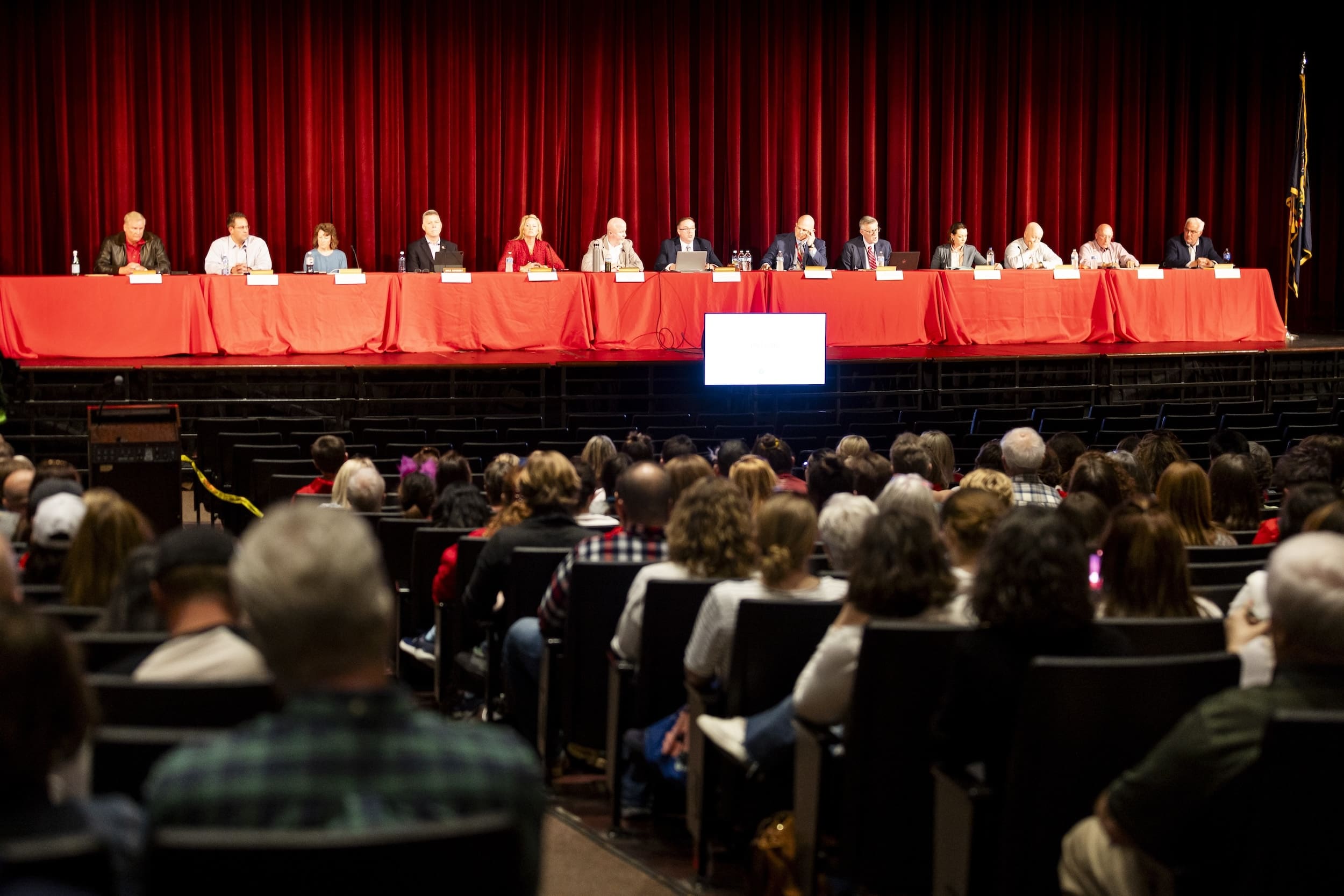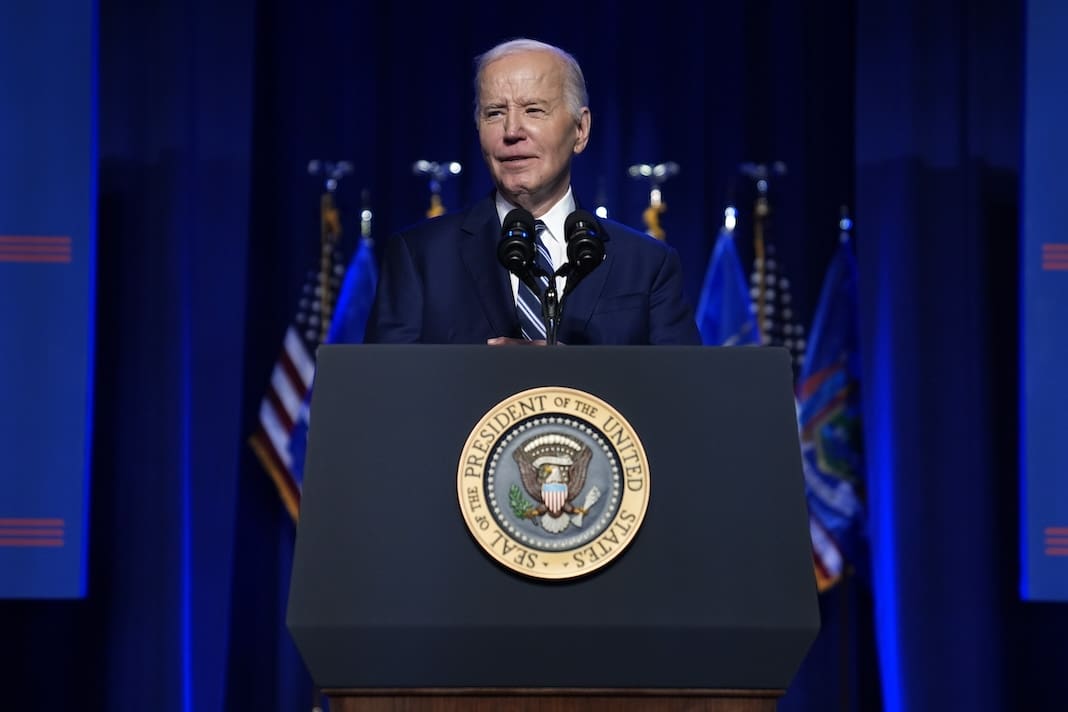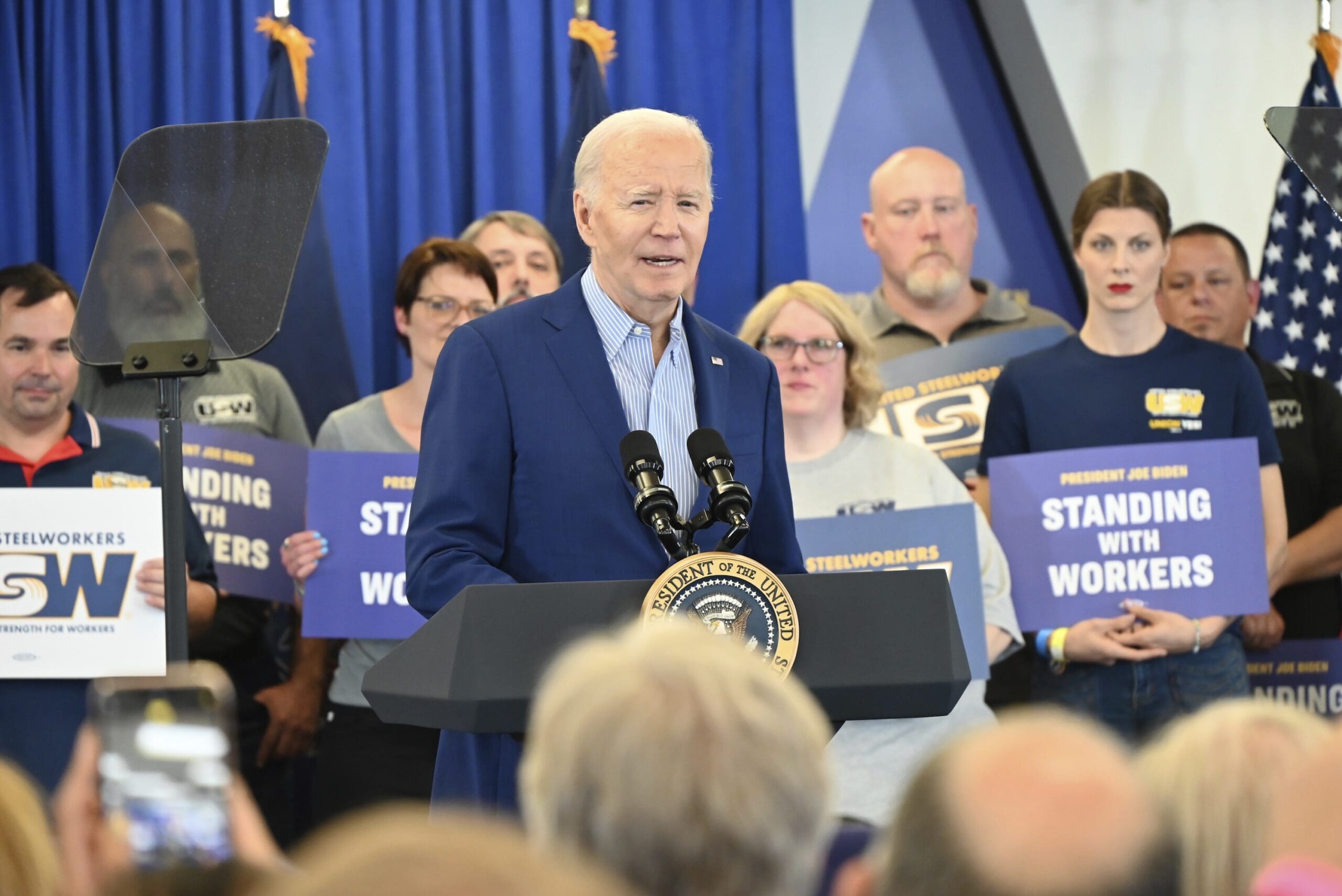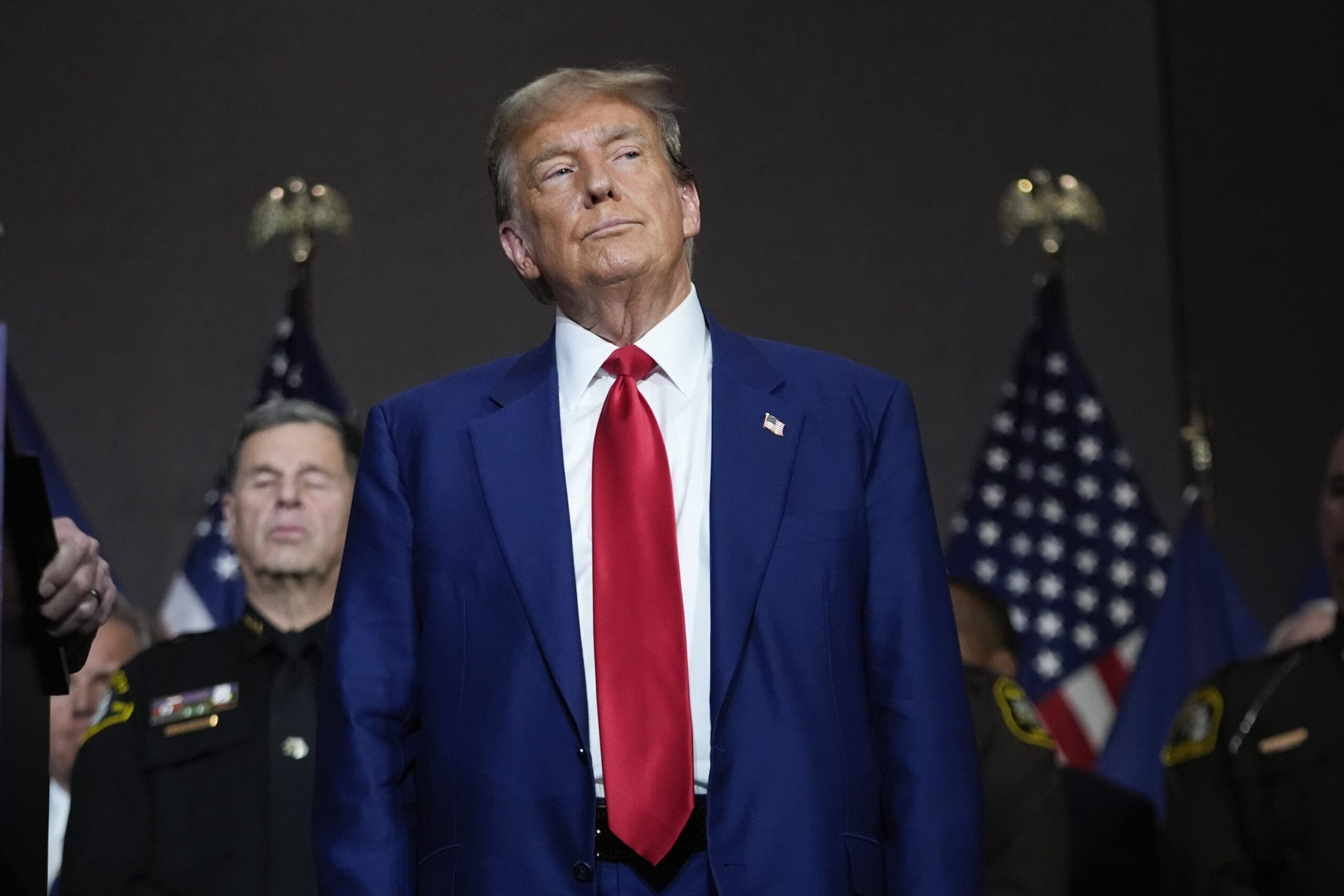Gov. Shapiro’s budget proposal recommends $1.1B in new education funding
The 2024-2025 proposed budget builds on last year’s historic investment in education.

Pennsylvania Democratic Gov. Josh Shapiro called for a historic increase in education funding in his 2024-2025 budget address on Feb. 6.
In total, the governor is seeking more than $1 billion in new education funding, which would be the largest boost in Pennsylvania history, surpassing last year’s already-historic increase.
“Last year, we made, together, the largest single-year increase in basic education funding in Pennsylvania history,” Shapiro told a packed chamber of Pennsylvania legislators.
The 2023 budget, Shapiro noted, funded universal free breakfast, mental health resources, repairs to school buildings, and teacher shortages.
“That was an excellent first step,” Shapiro said. But he pointed to a state court ruling last year that Pennsylvania’s levels of education funding are inadequate and unconstitutional.
“It should be noted that everyone here, legislators from both parties and both chambers, accepted the remedy the court put forth by virtue of your decision not to appeal the ruling,” the governor said. “With that decision, Republican leaders agreed to come to the table and fix the way we fund education.”
Shapiro referred to a report released last month by the Pennsylvania Basic Education Funding Commission that said schools in the state still need more money and recommended $5.4 billion in additional education funding over the next seven years.
The governor said that his proposed 2024-2025 budget follows the contours of the commission’s report by investing $1.1 billion in new funding.
“It makes sure no school gets less than what they did last year as we drive these dollars out in a more equitable manner,” Shapiro said.
Education advocates said they were pleased with the proposal.
“The governor’s budget proposal is a historic first step toward delivering what our public schools need to provide the public education that our constitution requires,” Aaron Chapin, president of the Pennsylvania State Education Association, said in a statement. “This is a solid beginning to a multiyear process, and we’re very pleased that this is one of Gov. Shapiro’s top priorities. We absolutely must make these critical investments in our public schools, students, educators, and support staff, and we can’t allow anything to distract us from doing it.”
Almost 900 million dollars of the education funding increase would go to support schools and students under a new adequacy formula that will help eliminate inequities and ensure schools across Pennsylvania have the level of resources they need.
The budget also includes $50 million for special education, $30 million for pre-K programs to recruit and retain teachers, and approximately $300 million for school repairs, building on what Shapiro called a “down payment” last year.
He gave examples of school districts badly in need of money for repairs, not just this year, but in the years to come as well.
The Sto-Rox School District in Allegheny County identified at least $14 million worth of needed repairs. The Scranton School District alone, the governor said, needs more than $300 million.
“This is something impacting students and parents all across Pennsylvania,” Shapiro said, including Rep. Elizabeth Fiedler and her children.
“A couple months ago, I had a meeting with Rep. Fiedler in my office,” Shapiro said. “I was a little surprised when she showed up with two of her kids, who were in tow that day because their school was closed after asbestos was detected. And look, I was happy to see Rep. Fiedler’s kids and I’m sure they enjoyed their time in the Capitol. But listen: There’s a lot of other families out there who would have had to miss part of a paycheck, miss a day’s work, because we didn’t do our part to make sure their schools could stay open and safe.”
Other highlights of Shapiro’s budget proposal include an adjustment to cyber charter school spending that will save school districts more than $260 million a year; a $5 million increase for student teaching stipends; and a 15% increase in funding for public colleges and universities in Pennsylvania, with the ultimate goal of ensuring middle-income families pay no more than $1,000 in annual tuition to attend them.




